Pope Francis' cunning long game
The quiet revolution continues

Pope Francis' stealth reform of the Roman Catholic Church shows no sign of slowing down — and may even be accelerating.
Stealth is key here. If the pope had declared earlier this month that henceforth the Roman Catholic Church would authoritatively teach that homosexuals should be happy being gay, that God made them homosexual, and that God himself (along with the pope) loves them just the way they are, it would have been a massive story in the history of Catholicism — and one that quite likely would have precipitated a major schism, with conservative bishops and priests (mainly in North America and Africa) formally breaking from Rome.
But because word of the pope saying these things comes to us second hand, in a report of a private conversation between Francis and a gay man named Juan Carlos Cruz who is also a victim of the clerical sex abuse crisis in Chile, the utterance will go down as just the latest example of the pope making unorthodox statements in settings in which he has plausible deniability and in which he can claim he was speaking as a pastor rather than as an expositor of the church's official dogmas and doctrines.
The Week
Escape your echo chamber. Get the facts behind the news, plus analysis from multiple perspectives.

Sign up for The Week's Free Newsletters
From our morning news briefing to a weekly Good News Newsletter, get the best of The Week delivered directly to your inbox.
From our morning news briefing to a weekly Good News Newsletter, get the best of The Week delivered directly to your inbox.
Most popes view themselves as caretakers of the church's authoritative teachings on faith and morals. When it comes to homosexuality, they would therefore be inclined to reaffirm the position laid out in the Catechism of the Catholic Church, which clearly states that homosexual desires are "intrinsically disordered" because they are not oriented to the end of procreation. (The same is true of masturbation and other non-procreative sex acts.)
If Pope Francis were a straightforward reformer, he would seek to change church doctrine regardless of the potentially dire consequences for church unity. But Francis is well aware of the limits of his power and the danger of pushing too far too fast. So he has set out on a different, and distinctive, path.
We first saw it early in his pontificate when the pope spoke to reporters about his views on homosexuality. In contrast to Joseph Ratzinger (Pope Benedict XVI), who declared in a 1986 letter to the bishops of the church that same-sex desires aim toward an "intrinsic moral evil," Francis told the press that "if someone is gay and he searches for the Lord and has good will, who am I to judge?"
It continued in September 2014 with a marriage ceremony over which Francis presided at St Peter's. Some of the 20 couples involved had been previously married, while others had given birth to children out of wedlock or lived with their fiancées before marriage. That prior behavior placed them firmly out of step with the requirements of Catholic doctrine, and yet the pope participated and blessed the marriages.
A free daily email with the biggest news stories of the day – and the best features from TheWeek.com
And on it has gone, through the notorious footnote in the apostolic exhortation that was published at the conclusion of the 2015 Synod on the Family, seeming to give priests the pastoral leeway to offer the sacrament of communion to parishioners who have been divorced and remarried without receiving an annulment of their first marriages. It has made headlines most recently when an elderly Italian journalist asserted that in an interview with Francis the pope had denied the dogma of hell.
And now there is Francis' apparent elaboration of his latitudinarian beliefs about homosexuality.
What unites all of these examples is a distinctive approach to church dogma and doctrine. Instead of acting as an expositor of these core teachings of the church, the pope selectively diverges from them in his actions and statements without deigning to change the teachings themselves. The implicit message is the same in every case: The pope himself thinks it's possible to be a member of the church in good standing while failing to abide by all of the institution's rules.
This is significantly different than the pope acknowledging that everyone is a sinner and will therefore break the rules from time to time. That standard view presumes that the divergence from the rule is a failing that requires repentance and reconciliation (the sacrament of confession), along with the intention on the part of the sinner to do better next time. Francis' position is different — implying that the lack of conformity to church teaching is acceptable, requiring no change or improvement in behavior.
Juan Carlos Cruz is gay, that's how God made him, and there's nothing wrong with that.
But of course church teaching contradicts this. Which puts Pope Francis in the position of effectively promulgating two truths — implicitly affirming the official, harsher doctrine while subtly undermining it with a less stringent pastoral teaching. Instead of seeking to change the underlying rules, which would risk divisiveness and even schism, he shows that it's perfectly alright for a priest or layperson to diverge from or ignore the rule in the name of welcoming as many people as possible to Christ's church.
Conservative Catholics like Ross Douthat (the author of a new book on this very topic) worry that Francis' fudging of doctrinal truth will have bad consequences for the church because it simply defers a necessary debate about what the church actually believes. Better to have the argument sooner rather than later.
But I think the pope's strategy for a longer game displays greater psychological acuity — and Machiavellian cunning. Francis may be betting that once the church stops preaching those doctrines that conflict most severely with modern moral norms, the number of people who uphold and revere them will decline rapidly (within a generation or two). Once that has happened, officially changing the doctrine will be much easier and much less likely to provoke a schism (or at least a major one) than it is in the present.
That's the great advantage of pursuing a strategy of stealth reform: The seed planted now with a minimum of conflict bears fruits in the future with even less.
It's never been more obvious that this is precisely what Pope Francis has in mind.
Damon Linker is a senior correspondent at TheWeek.com. He is also a former contributing editor at The New Republic and the author of The Theocons and The Religious Test.
-
 World’s oldest rock art discovered in Indonesia
World’s oldest rock art discovered in IndonesiaUnder the Radar Ancient handprint on Sulawesi cave wall suggests complexity of thought, challenging long-held belief that human intelligence erupted in Europe
-
 Claude Code: the viral AI coding app making a splash in tech
Claude Code: the viral AI coding app making a splash in techThe Explainer Engineers and noncoders alike are helping the app go viral
-
 ‘Human trafficking isn’t something that happens “somewhere else”’
‘Human trafficking isn’t something that happens “somewhere else”’Instant Opinion Opinion, comment and editorials of the day
-
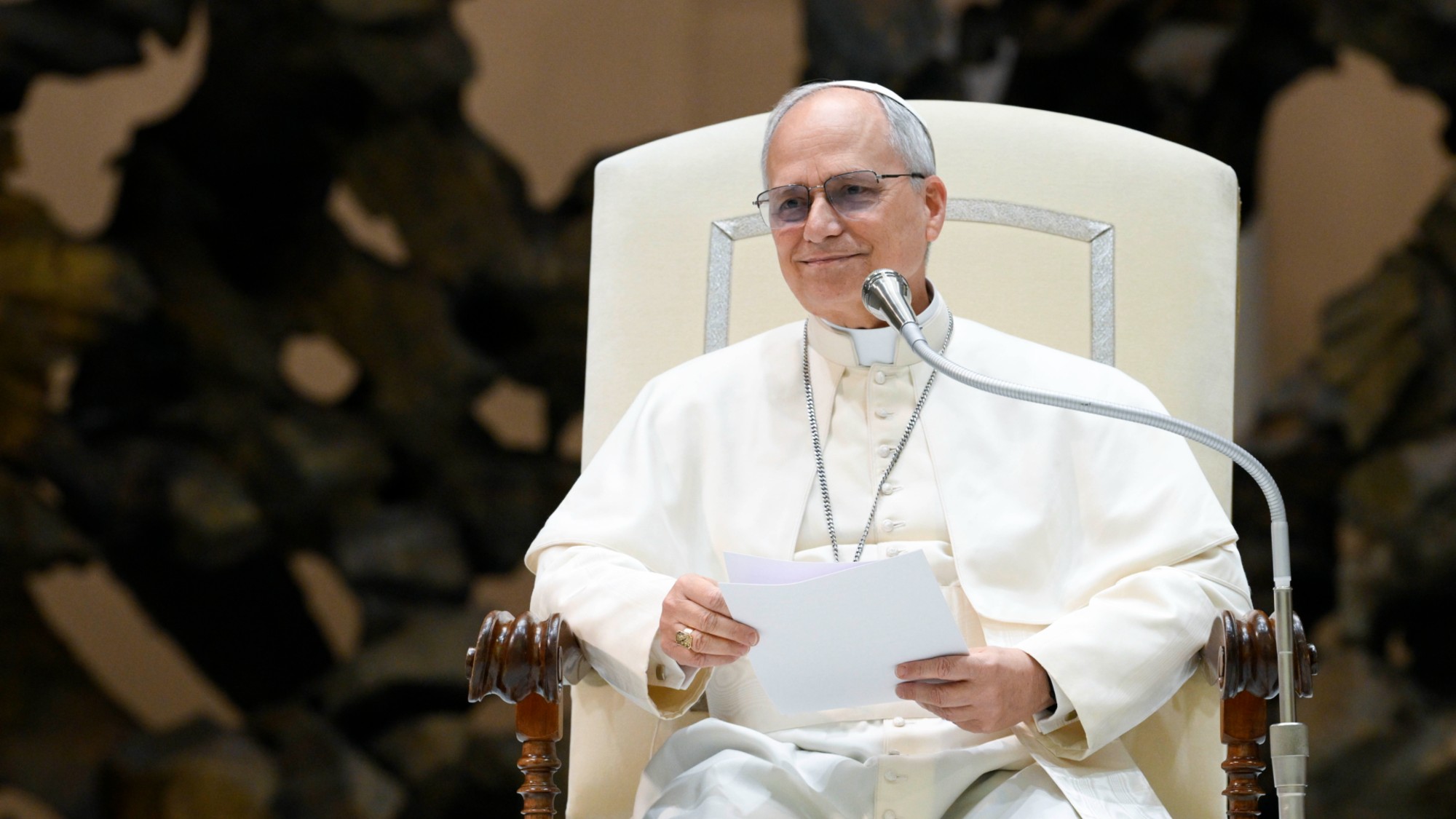 Where the new Pope Leo XIV stands on social issues
Where the new Pope Leo XIV stands on social issuesThe Explainer The first American pontiff is expected to continue some of his predecessor's work
-
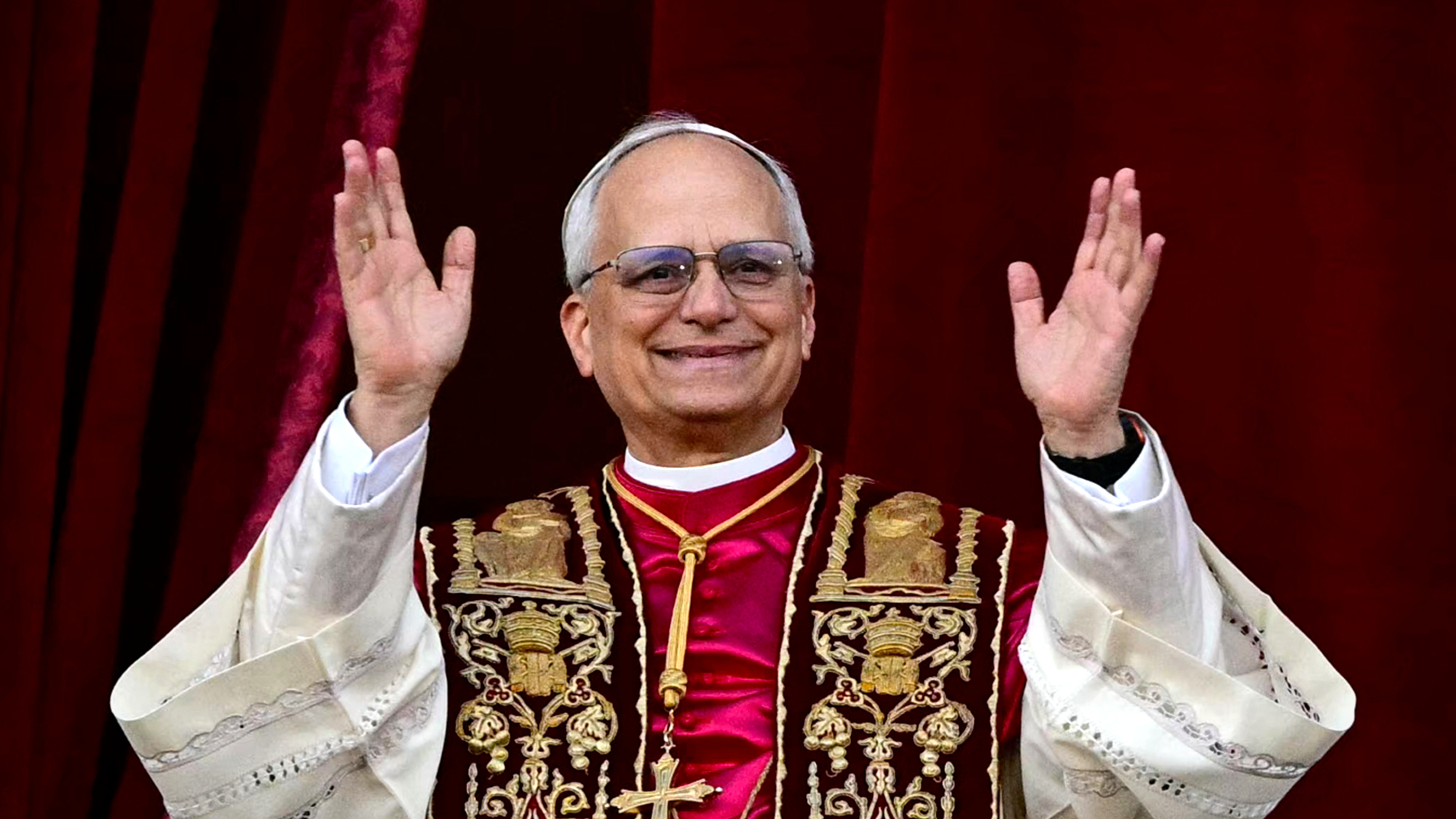 Prevost elected first US pope, becomes Leo XIV
Prevost elected first US pope, becomes Leo XIVspeed read Cardinal Robert Francis Prevost is a Chicago native who spent decades living in Peru
-
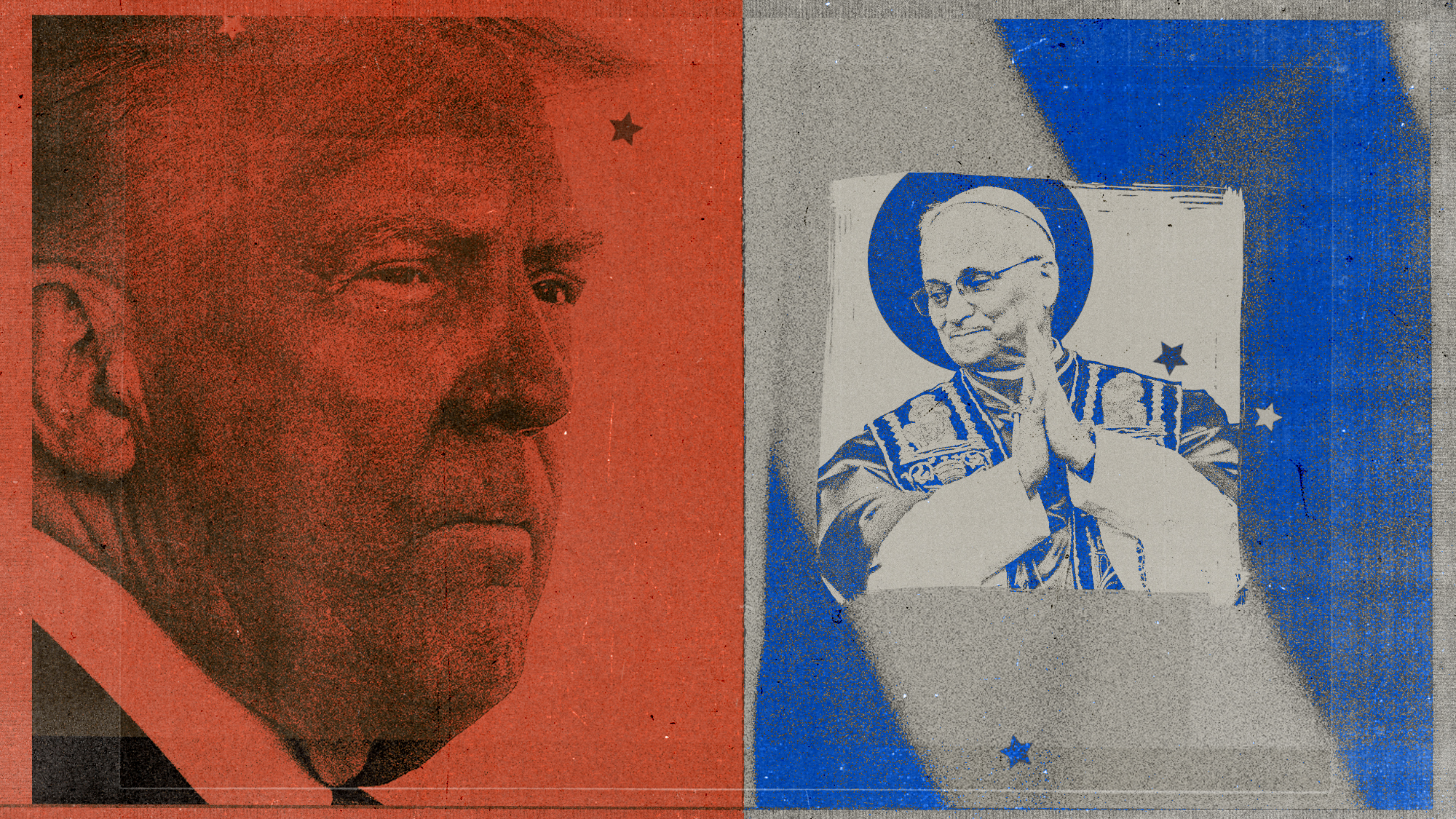 Leo XIV vs. Trump: what will first American Pope mean for US Catholics?
Leo XIV vs. Trump: what will first American Pope mean for US Catholics?Today's Big Question New pope has frequently criticised the president, especially on immigration policy, but is more socially conservative than his predecessor
-
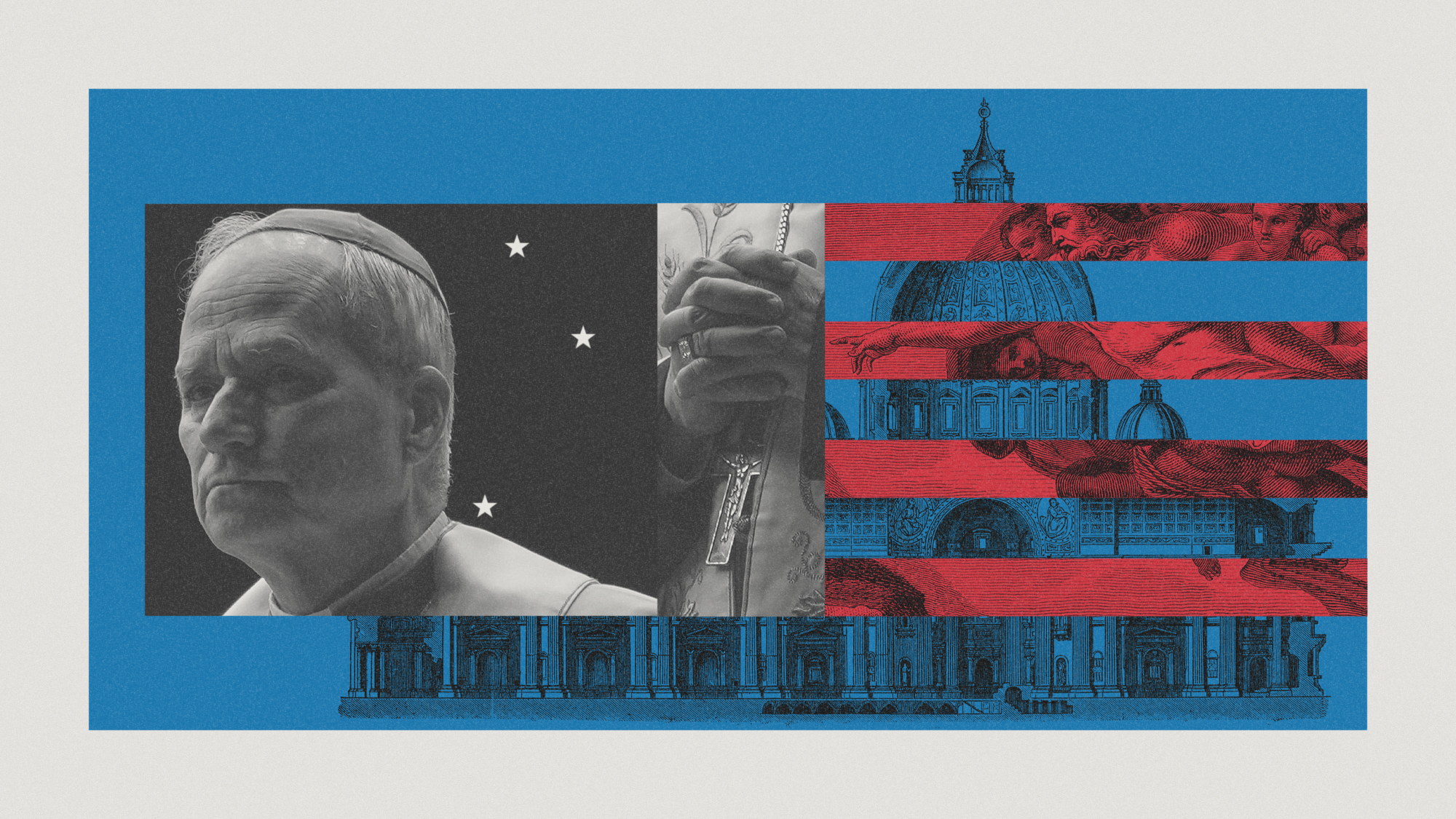 Could the next pope be an American?
Could the next pope be an American?Today's Big Question Cardinal Robert Francis Prevost is a possible 'superpower pope'
-
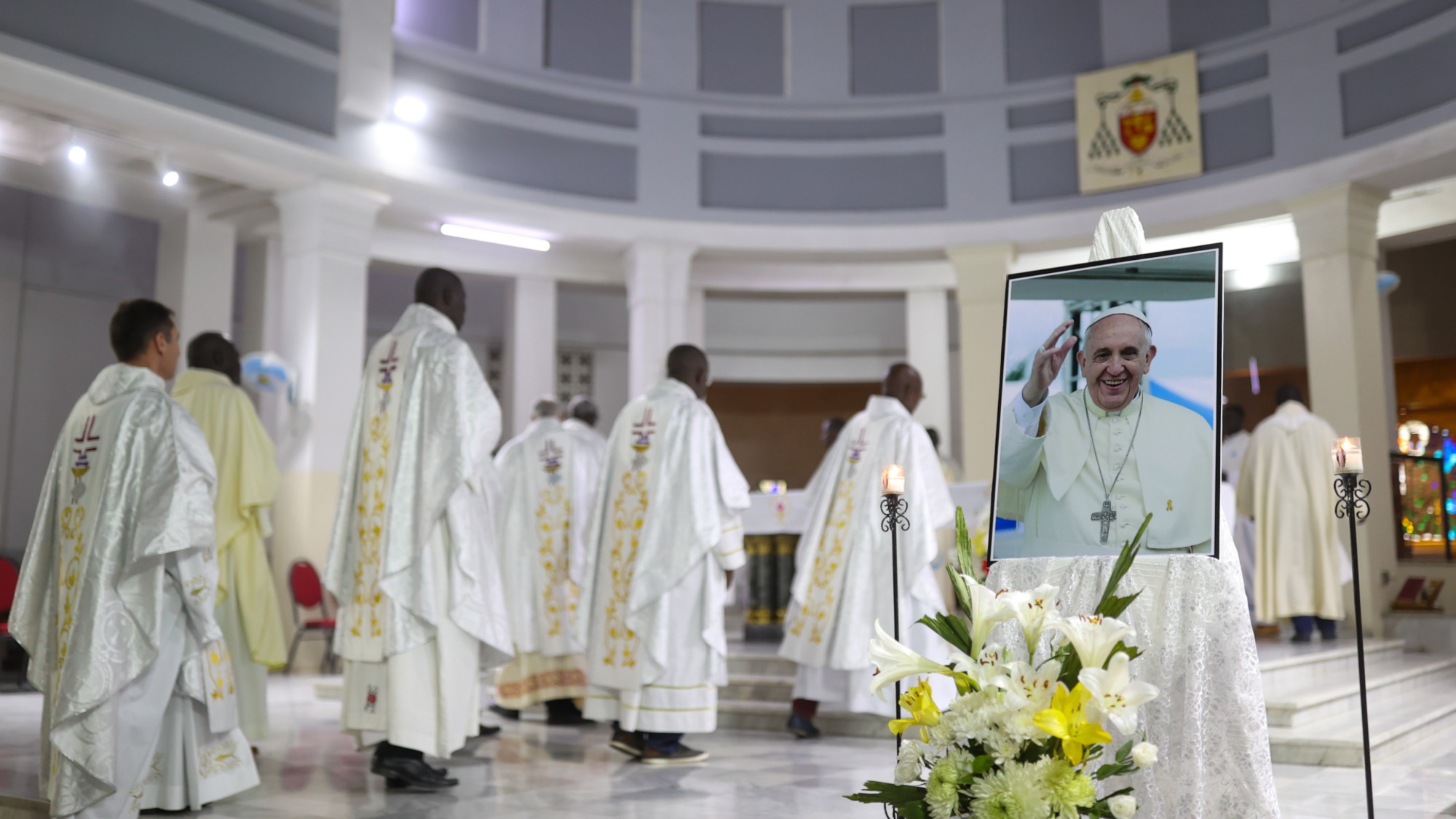 What would an African pope mean for the continent?
What would an African pope mean for the continent?Today's Big Question The Catholic Church has never had a pope from Africa in its modern history
-
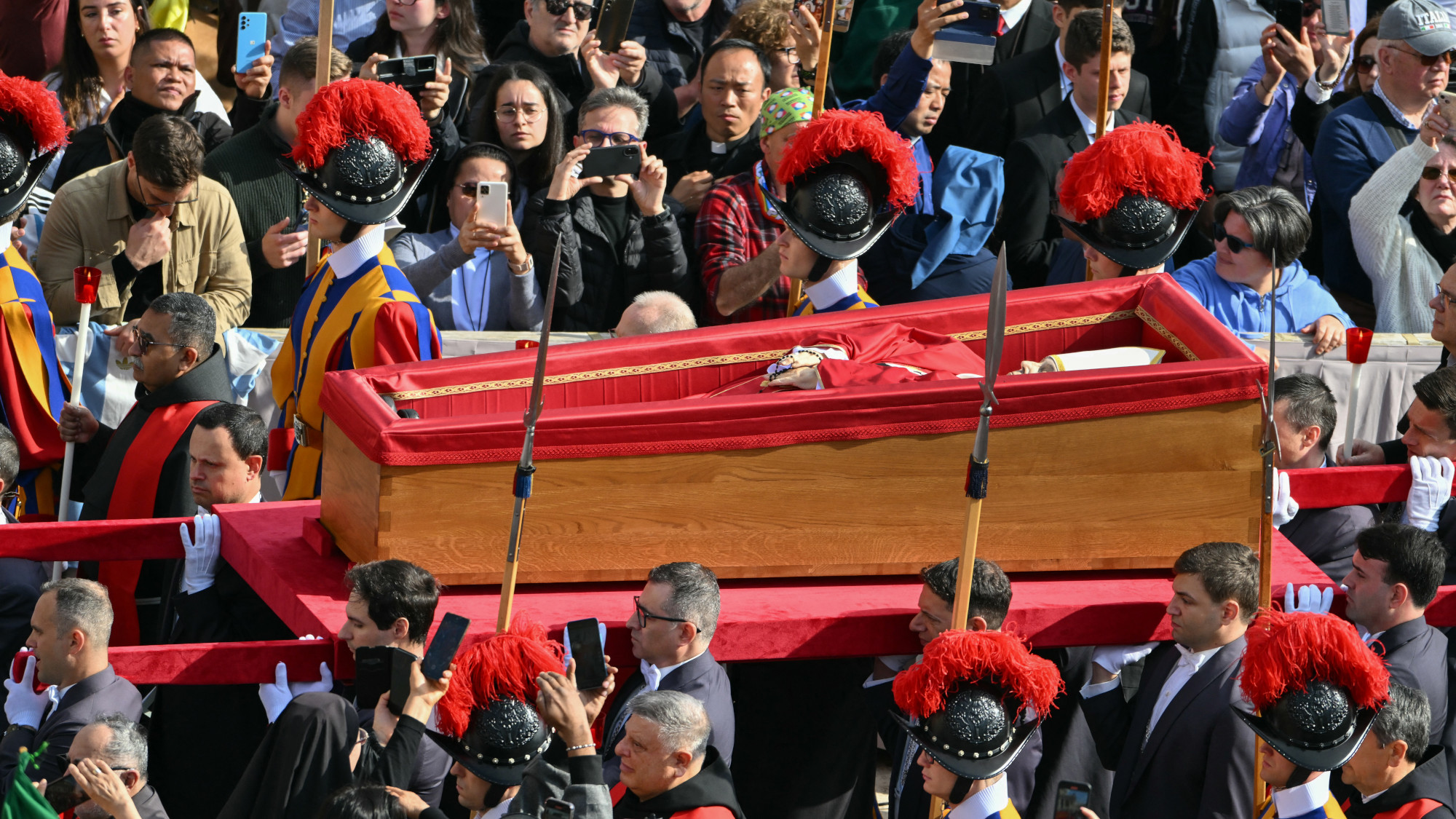 Millions mourn as Vatican prepares for transition
Millions mourn as Vatican prepares for transitionFeature Pope Francis, the pontiff who challenged tradition, leaves the Catholic Church at a crossroad to choose his successor
-
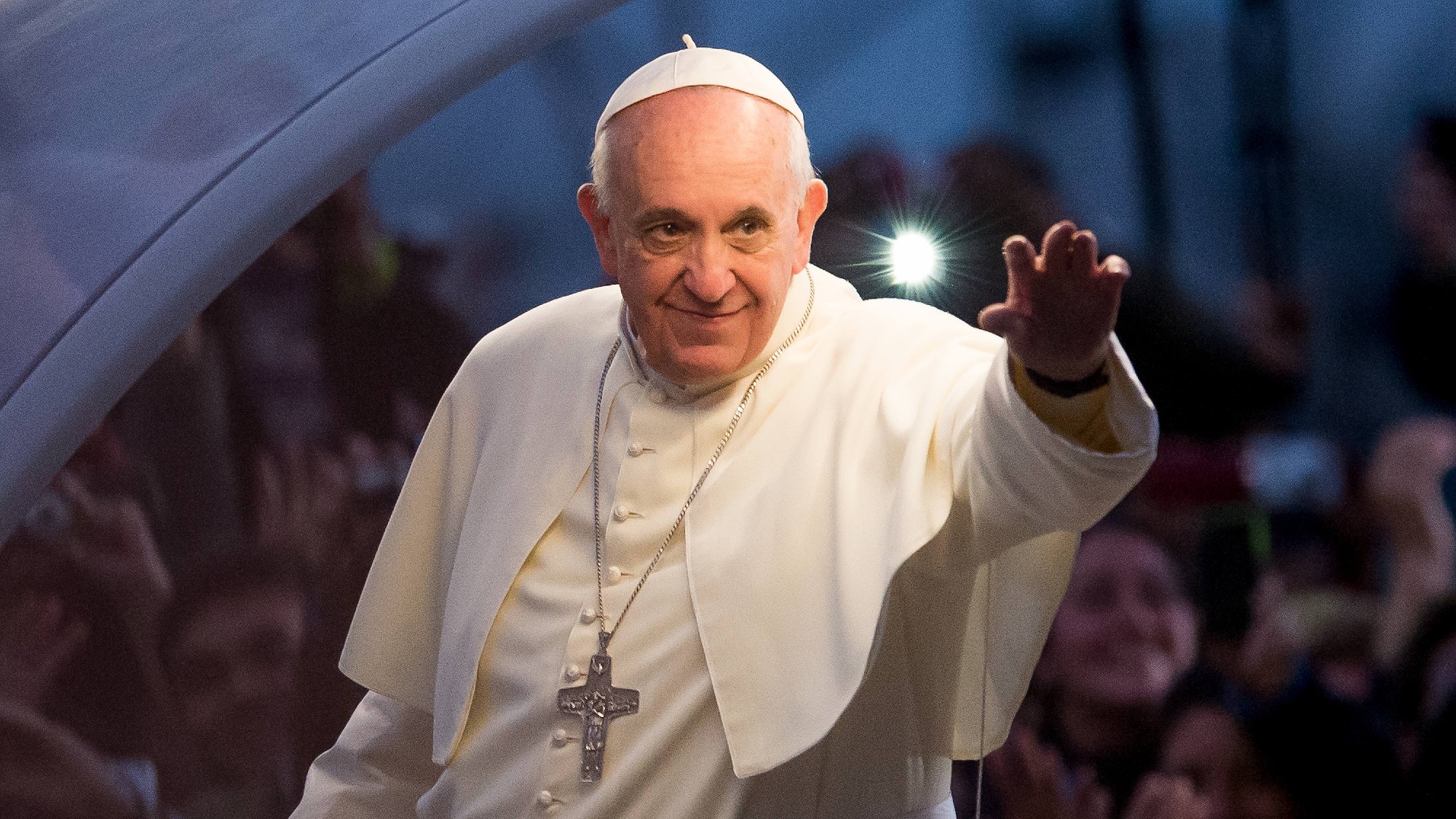 Pope Francis obituary: modernising pontiff who took the Gospel to the margins
Pope Francis obituary: modernising pontiff who took the Gospel to the marginsIn the Spotlight For traditionalist Catholics, Jorge Bergoglio's reforms often seemed to go too far; progressives, though, will demand more of his successor
-
 How will the next pope change the Catholic Church?
How will the next pope change the Catholic Church?Talking Points Conclaves can be unpredictable
